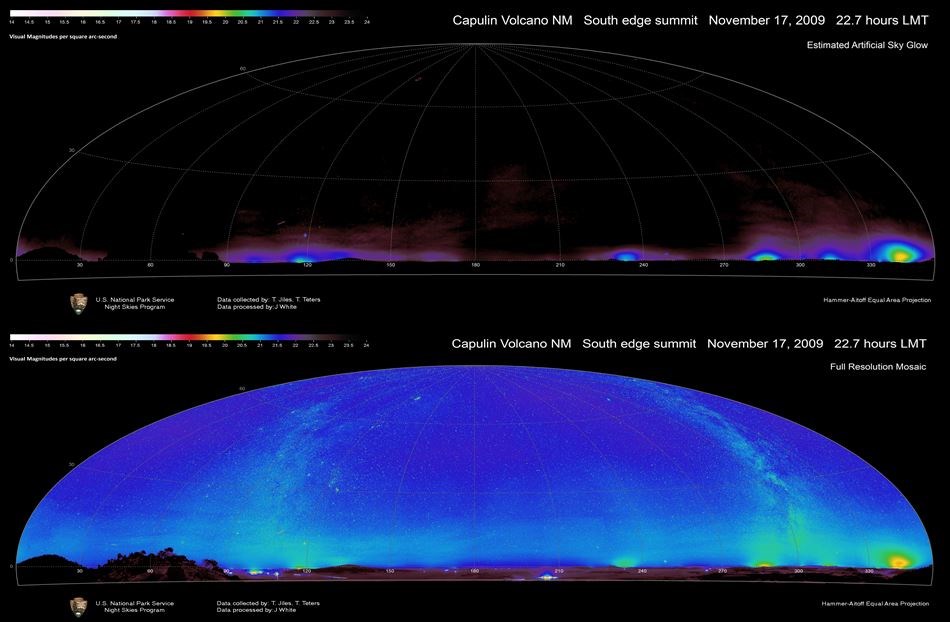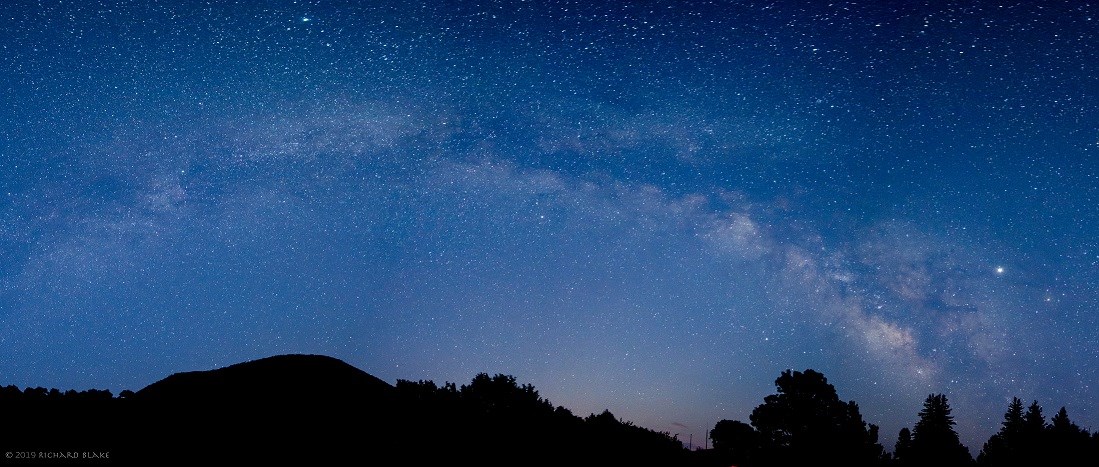
NPS Photo Light pollution occurs when indoor and outdoor lighting is inefficiently used and wasted by light fixtures that are too bright, poorly aimed, or improperly shielded, causing glares and creating a brightening of the sky over inhabited areas (otherwise known as skyglow). About 80% of the world's population lives under skyglow, and it's estimated that in the United States alone over 30% of outdoor light is wasted, which leads to an energy loss of around $3 billion per year and, for many people, the inability to experience a natural night. Light pollution also has negative affects on wildlife, altering the noctural behavior patterns of animals, insects, and birds. Since many parks and natural areas are sparsely populated, they can often offer an area mostly free of light pollution, where both people and wildlife can experience natural night skies. Our night skies are a precious resource, learn what you can do to help lessen light pollution. Because of the low population of the area surrounding Capulin Volcano National Monument and the lack of artifical light, the views of the night skies here are truely exceptional. For this reason, Capulin Volcano National Monument was designated a Gold Tier International Dark Sky Park by the International Dark Sky Association in 2016. Visitors are welcome to come view the night sky at the park at any time from the parking lot of the visitor center, which is our designated dark sky viewing area. In order for night sky experiences to be more enjoyable for everyone, the park asks that visitors keep the area clean, do not camp here, do not build fires or play music, and respect the privacy of staff housing. To aid in viewing the night sky, you can check the astronomical forecast for the best time to see the stars. The park also occasionally hosts night sky viewing events with telescopes that are open to the public. For a complete list of events, visit our astonomy page. 
NPS Photo/Richard Blake |
Last updated: April 24, 2025
